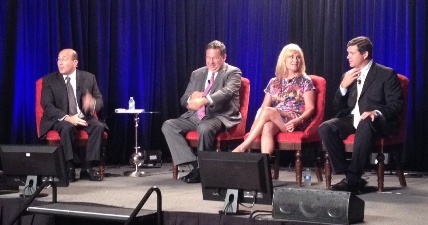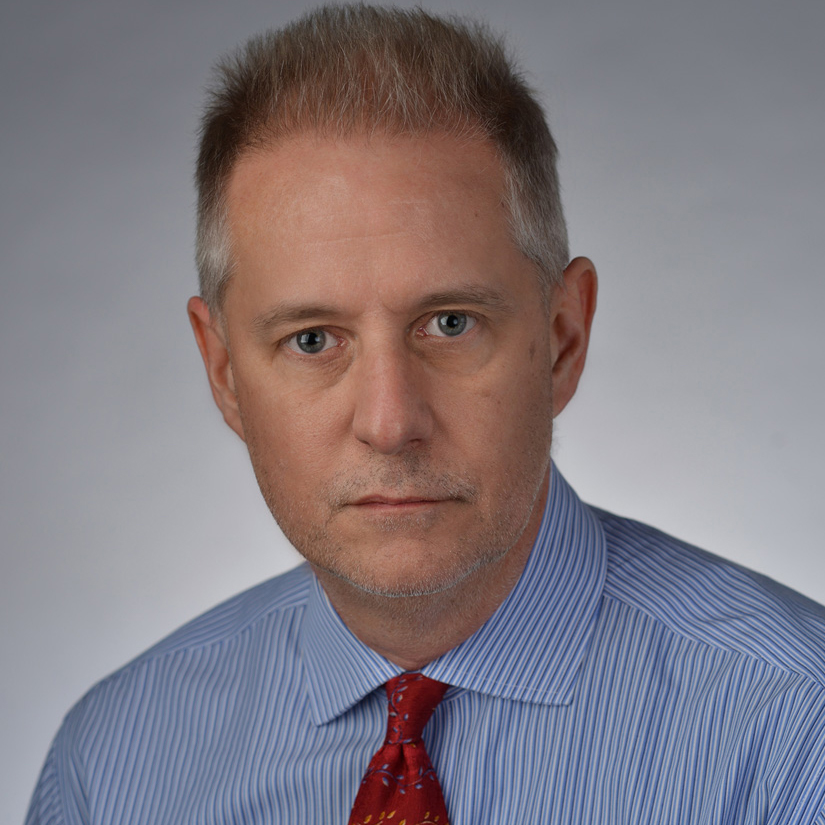NECTA: FCC Pile-Up 'Nerve Racking'
The smarter way to stay on top of the multichannel video marketplace. Sign up below.
You are now subscribed
Your newsletter sign-up was successful

Newport, R.I. – Against a backdrop of merger action and talk among the biggest pay-TV distributors and content companies, cable executives at a regional cable-TV convention here said their companies are more valuable than ever – despite pressure from competition and uncertainty about federal regulation.
David Cohen, Comcast’s executive vice president and chief policy officer, a day after testifying at a Senate hearing on open-Internet policies, said the pile-up of merger reviews and big policy concerns at the Federal Communications Commission was a bit nerve-racking. Comcast’s proposed takeover of Time Warner Cable should be examined on its own merits, and not in the context of AT&T’s plan to buy DirecTV or whatever happens with 21st Century Fox’s effort to buy Time Warner Inc., he said.
But the FCC is dealing with the Comcast and AT&T merger plans at the same time it’s framing open-Internet policies, all in the next six to nine months, he said. The blowback against FCC chairman Tom Wheeler’s first attempt to act on federal court direction to set open-Internet rules under Section 706 of the Telecommunications Act prompted Wheeler to inject talk about Title II regulation of broadband “in a way that is much more front and center than I am comfortable with,” he said.
“You end up with a SOPA-PIPA moment, which the press is desperately trying to create," he said, alluding to proposed Internet privacy legislation the Congress was forced to abandon under enormous consumer backlash.
Cohen said he didn’t think the FCC would go for Title II regulation ultimately. Speaking on a panel with Cohen, Cox Communications EVP and chief operating officer Jill Campbell said she agreed the FCC wouldn’t opt for Title II but said she hoped the FCC would not become too “intrusive” on open-Internet and bandwidth-management policies. “Our position as an industry is we believe in an open Internet,” she said at the opening session of the New England Cable & Telecommunications Association’s annual convention. But if policies end up targeting Internet providers and making it hard for them to innovate and offer growing speed that customers want "that's not going to benefit anyone."
Jim Bruder, chairman and CEO of cable company Harron Communications, also on the panel, said broadband providers would like to be able to make judgments such as giving 911-emergency calls priority over Web searches as "an extreme example." Bandwidth-management restrictions are clearly an outcome that cable operators worry about coming out of the FCC’s open-Internet rulemaking.
Overall, the panelists were optimistic about the cable business, while being mindful that pay-TV offerings have to adapt to attract younger consumers who expect content to come for free and to serve multicultural audiences with programming they want and can afford.
The smarter way to stay on top of the multichannel video marketplace. Sign up below.
Bruder said his family is in its 50th year in the cable-TV business and likes the growth prospects, still, largely because of other business lines than just multichannel video. “We see a good future, even as a small operator,” he said in answer to a question from moderator Ron Insana, the CNBC senior analyst.
Campbell spoke about “polarization” of the U.S. economy into wealthier and older consumers on one hand and younger, multiethnic populations, with the growth coming from the younger and less-affluent segments. Cable needs to offered different products to appeal to diverse audience segments, she said.
Cohen and Campbell both said cable needed to do a better job marketing the value of the product and not just either explaining why programmers have driven up the price of cable. "Every consumer piece of research that we do, the number one complaint is pricing. It just is," Campbell said. "And I think that's going to be something the industry is going to have to deal with. When you think about companies like Google, they come in and they say, here's a $70 price point on broadband and $15 on video, that's problematic for us. So we've got to rewrite the value equation and figure out a different angle than always trying to go after pricing."
This longtime regional cable convention – the association CEO Paul Cianelli is attending his 39th NECTA conference – concludes tomorrow at the Newport Marriott. The opening panel is slated to be televised Sunday on New England Cable News, convention officials said.
Kent has been a journalist, writer and editor at Multichannel News since 1994 and with Broadcasting+Cable since 2010. He is a good point of contact for anything editorial at the publications and for Nexttv.com. Before joining Multichannel News he had been a newspaper reporter with publications including The Washington Times, The Poughkeepsie (N.Y.) Journal and North County News.

